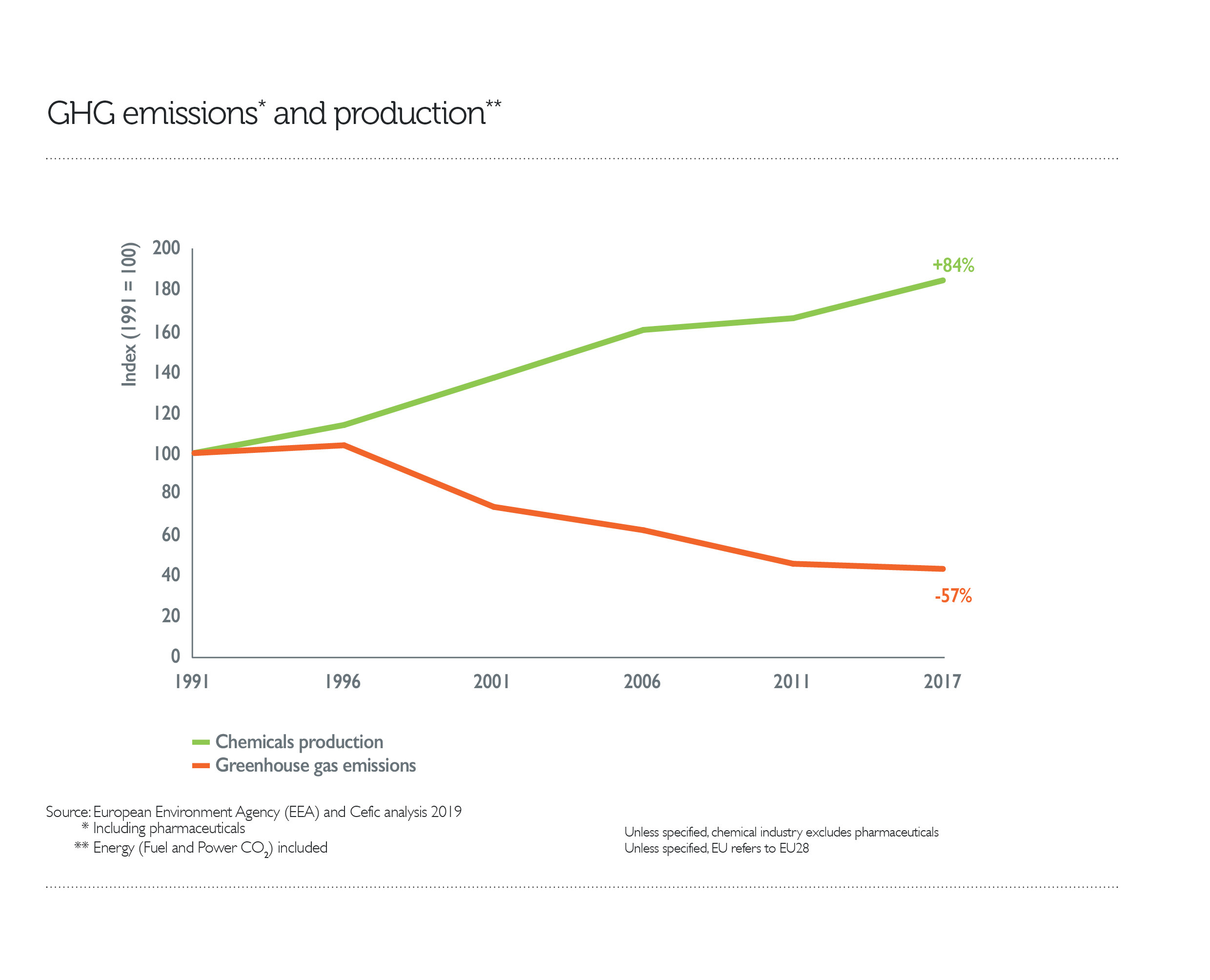Climate change
The Climate Change agreement signed by world leaders in Paris at COP21 in December 2015 is a landmark agreement to cap carbon emissions in order to keep global temperature rise below 2° Celsius by the end of the century. The European Green Deal published in December 2019 sets out the ambition of a climate-neutral Europe by 2050. CEFIC and Petrochemicals Europe support this objective and call for the EU to establish an enabling framework.
EU policy
In March 2020, the European Commission published its proposal for the first European Climate Law to write into law the goal set out in the European Green Deal – for Europe’s economy and society to become climate-neutral by 2050.
This means achieving net zero greenhouse gas (GHG) emissions for EU countries, mainly by cutting emissions, investing in green technologies and protecting the natural environment. The law aims to ensure that all EU policies contribute to this goal and that all sectors of the economy and society play their part.
Our view
Cefic, to which Petrochemicals Europe belongs, supports Europe’s ambition to become climate neutral by 2050. Therefore, we welcome the European Commission proposal for a European Climate Law enshrining the climate neutrality objective into legislation and aiming to achieve progress on the global adaptation goal.
Cefic calls for a sectoral chemical dialogue between Commission, chemicals industry and EU-27 to accelerate conditions needed – part of a “Clean Industry Package” or “Low carbon industry alliance” – creating enablers for transforming Energy Intensive Industries.
The European chemicals industry has a strong record of cutting its GHG emissions. The European chemicals industry has decoupled its GHG emissions from production growth. From 1990 to 2017, it reduced its GHG emission by nearly 60% while increasing its production by 84%.
Furthermore, the European (petro-) chemical industry enables other industries to reduce their own carbon footprint. Products derived from petrochemicals are key for downstream users to innovate in low-carbon technologies such as windmills, solar panels, insulation materials and electric cars.
Our industry’s transformation crucially depends on the availability of abundant, reliable, affordable, climate-neutral energy. Urgent measures are needed to accelerate electrification at large scale, provide hydrogen in enough quantities and enable Carbon Capture and Storage (CCS). Union-wide mechanisms like the EU Emission Trading Scheme (ETS) guarantee a level playing field, which is essential to avoid competition distortions inside the Internal Market. Cefic is strongly in favour of an EU-wide GHG target and compliance mechanism(s), in particular for the manufacturing industry. Other policies in the field of renewable energy and energy efficiency should only be supportive of the GHG reduction mechanism.
From 1990 to 2017, the chemical industry reduced its GHG emission by 60% while increasing its production by 85%.

